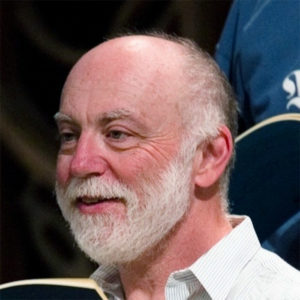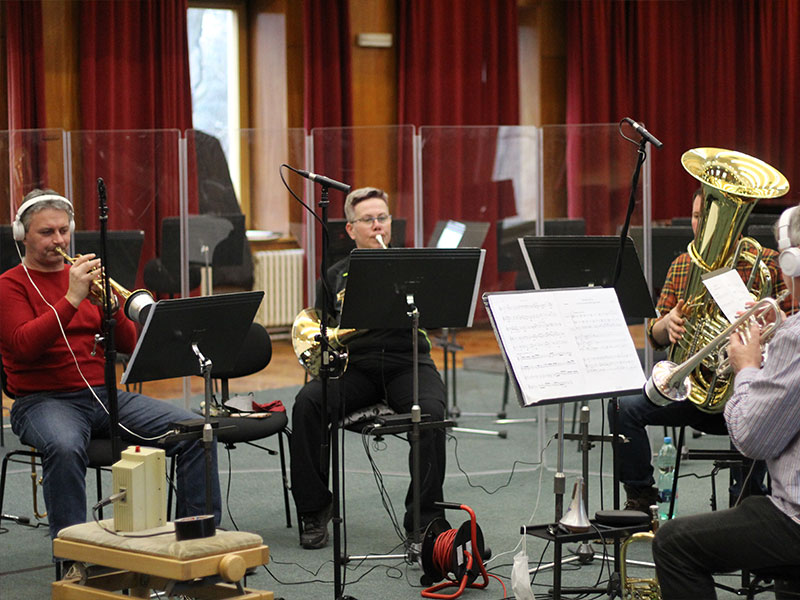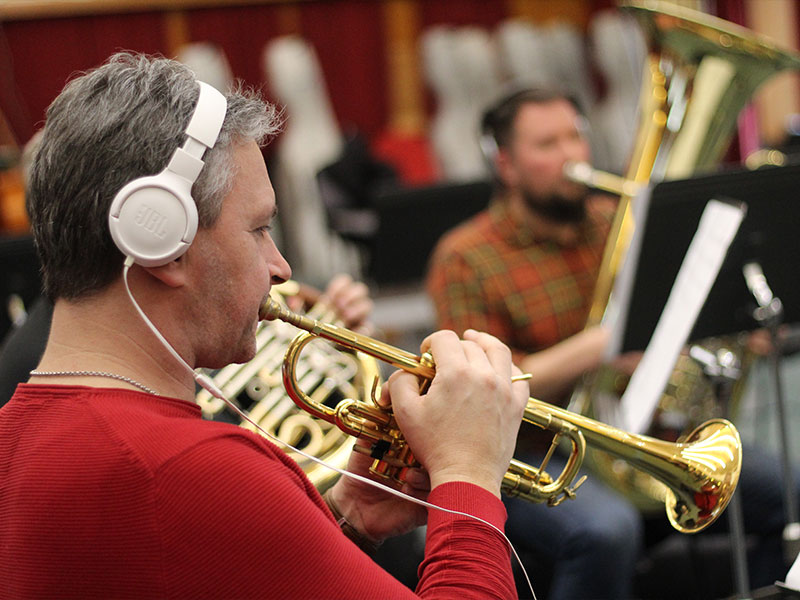Brass Tacks
Brian Belet composer
Nathan Wilson Ball composer
Janice Macaulay composer
L Peter Deutsch composer
Andrew Lewinter composer
BRASS TACKS from Navona Records offers far more than the fundamental idioms of classical music. While the works featured on this album pay homage to great classical and romantic composers, subtle contemporary flairs shine throughout this collection. Odd meters, blue notes, ferocious brass writing, and imaginative deviations from traditional song structures seamlessly push the envelope for brass repertoire. Delve into the rich sound of brass soloists and ensembles in this compelling multi-composer album.
Listen
Stream/Buy
Choose your platform
Track Listing & Credits
| # | Title | Composer | Performer | |
|---|---|---|---|---|
| 01 | Three by Five: I. Two Short Fugues | Brian Belet | Janáček Philharmonic Ostrava Brass Quintet | Roman Buchal, trumpet; Petr Kabil, trumpet; Věra Bartošová, horn; Vladimír Ševčík, trombone; Jiří Král, tuba | 4:09 |
| 02 | Three by Five: II. More Questions (Still Unanswered) | Brian Belet | Janáček Philharmonic Ostrava Brass Quintet | Roman Buchal, trumpet; Petr Kabil, trumpet; Věra Bartošová, horn; Vladimír Ševčík, trombone; Jiří Král, tuba | 4:49 |
| 03 | Three by Five: III. Fugal Reflections | Brian Belet | Janáček Philharmonic Ostrava Brass Quintet | Roman Buchal, trumpet; Petr Kabil, trumpet; Věra Bartošová, horn; Vladimír Ševčík, trombone; Jiří Král, tuba | 4:44 |
| 04 | Nocturne | Nathan Wilson Ball | Janáček Philharmonic Ostrava Brass Quintet | Roman Buchal, trumpet; Petr Kabil, trumpet; Věra Bartošová, horn; Vladimír Ševčík, trombone; Milan Zatloukal, bass trombone<br /> | 5:30 |
| 05 | Tuba Contra Mundum | Janice Macaulay | Jobey Wilson, tuba | 3:53 |
| 06 | 5/4 Fugue in G Major | L Peter Deutsch | Janáček Philharmonic Ostrava Brass Quintet | Roman Buchal, trumpet; Petr Kabil, trumpet; Věra Bartošová, horn; Vladimír Ševčík, trombone; Jiří Král, tuba | 2:33 |
| 07 | Mountain Journey: I. Toward the Mountains | L Peter Deutsch | Janáček Philharmonic Ostrava Brass Quintet | Roman Buchal, trumpet; Petr Kabil, trumpet; Věra Bartošová, horn; Vladimír Ševčík, trombone; Jiří Král, tuba | 3:23 |
| 08 | Twilight Waltz | L Peter Deutsch | Janáček Philharmonic Ostrava Brass Quintet | Roman Buchal, trumpet; Petr Kabil, trumpet; Věra Bartošová, horn; Vladimír Ševčík, trombone; Jiří Král, tuba | 3:30 |
| 09 | Sonata for Horn and Piano: I. Allegro | Andrew Lewinter | James Wilson, horn; Katherine Ciscon, piano | 7:31 |
| 10 | Sonata for Horn and Piano: II. Andante | Andrew Lewinter | James Wilson, horn; Katherine Ciscon, piano | 4:49 |
| 11 | Sonata for Horn and Piano: III. Theme and Variations | Andrew Lewinter | James Wilson, horn; Katherine Ciscon, piano | 5:24 |
Three by Five
Recorded March 1, 2021 at Dům Kultury města Ostravy (The Ostrava House of Culture), Ostrava, Czech Republic
Session Producer Jan Košulič
Session Engineer Aleš Dvořák
Editing & Mixing Jacob Steingart, Lucas Paquette
Nocturne
Recorded March 2, 2021 at Dům Kultury města Ostravy (The Ostrava House of Culture), Ostrava, Czech Republic
Session Producer Jan Košulič
Session Engineer Aleš Dvořák
Editing & Mixing Jacob Steingart
5/4 Fugue in G Major, Towards the Mountains (Mvt. I), Twilight Waltz
Recorded December 9-10, 2021 at Dům Kultury města Ostravy (The Ostrava House of Culture), Ostrava, Czech Republic
Session Producer Jan Košulič
Session Engineer Aleš Dvořák
Editing & Mixing Lucas Paquette
Tuba Contra Mundum
Recorded September 25, 2020 at Futura Productions, Roslindale MA
Session Producer & Engineer John Weston
Assistant Engineer Jacob Steingart
Editing & Mixing Lucas Paquette
Sonata for Horn and Piano
Recorded June 3rd, 2019 in Houston TX
Session Producer Robert Walp
Recording Session Engineer Christian Schubert
Executive Producer Bob Lord
Executive A&R Sam Renshaw
A&R Director Brandon MacNeil
A&R Chris Robinson, Danielle Lewis
General Manager of Audio & Sessions Jan Košulič
Production Director Levi Brown
Audio Director Lucas Paquette
Production Assistant Martina Watzková
Mastering Melanie Montgomery
VP, Design & Marketing Brett Picknell
Art Director Ryan Harrison
Design Edward A. Fleming, Morgan Hauber
Publicity Patrick Niland, Brett Iannucci
Content Manager Sara Warner
Artist Information

Brian Belet
Brian Belet lives in northwestern Oregon with his partner and wife Marianne Bickett. His album SUFFICIENT TROUBLE, containing ten of his computer music compositions, was published by Ravello Records in 2017. Stellar Nebulae, for string orchestra, was published on the album PRISMA VOL. 4 by Navona Records in 2020, and his brass quintet Three by Five was published on the album BRASS TACKS, also by Navona Records, in 2022. Additional music is recorded on albums published by Capstone, Centaur, Frog Peak Music, IMG Media, Innova, New Ariel Recording, SWR Music/Hänssler Classic, and the University of Illinois labels, with research published in Contemporary Music Review, Organised Sound, Perspectives of New Music, Proceedings of the International Computer Music Conference, and Proceedings of the International Web Audio Conference.

Nathan Wilson Ball
Inspired by Christian iconography, Nathan’s compositions emphasize music’s ability to propose emotional narratives by layering and/or juxtaposing simple musical ideas, or “sonic icons.“ This approach to composition—praised by the Boston Globe as “adroit and expressively efficient”—stresses the relationship between disparate musical ideas, which the audience is invited to reconcile of their own accord. And while the narrative journeys of Nathan’s compositions can thus be as varied as humanity itself, the subject of each work points only to One: the salvation of humanity.

Janice Macaulay
Composer, educator, and conductor Janice Macaulay received her D.M.A. in composition from Cornell University, where she studied with Karel Husa and Steven Stucky. Reviewers have said her music “creates an arresting playground of sounds and effects” (Gramophone) and features “dynamic, lyrical and playful interactions among the players” (Classical Music Review). She won the Alex Shapiro Prize from the International Alliance of Women in Music for Kaleidoscope for Wind Symphony, commissioned by the Cornell University Wind Symphony in memory of Karel Husa and recorded by the University of Maryland, Baltimore County Wind Ensemble on the Albany Records label.

L Peter Deutsch
L Peter Deutsch is a native of Massachusetts, now living in Sonoma County CA, and British Columbia, Canada. He writes primarily for small instrumental or a capella vocal ensembles, spanning styles from devotional to romantic to jazzy, and from Renaissance to early 20th century. Works to date include four choral commissions; releases through PARMA Recordings include music for chorus, string quartet, woodwind and brass quintets, piano trio (featuring work with Trio Casals), and full orchestra.

Andrew Lewinter
Before turning his attention to composition, Andrew Lewinter had a long and varied career as an orchestral horn player and soloist. As a composer, Lewinter has a decidedly tonal and neo-romantic style that is often very contrapuntal and always emotionally gripping. His works include sonatas for each of the brass instruments and piano, a quartet for trumpet, horn, trombone and piano, quintets for both horn and string quartet and oboe and string quartet, a woodwind quintet, a string quartet, and a trio for oboe, horn, and piano, among other works scored for a variety of chamber ensembles. Lewinter’s compositions have been widely performed and recorded, and are available on Navona Records and Ablaze records.



